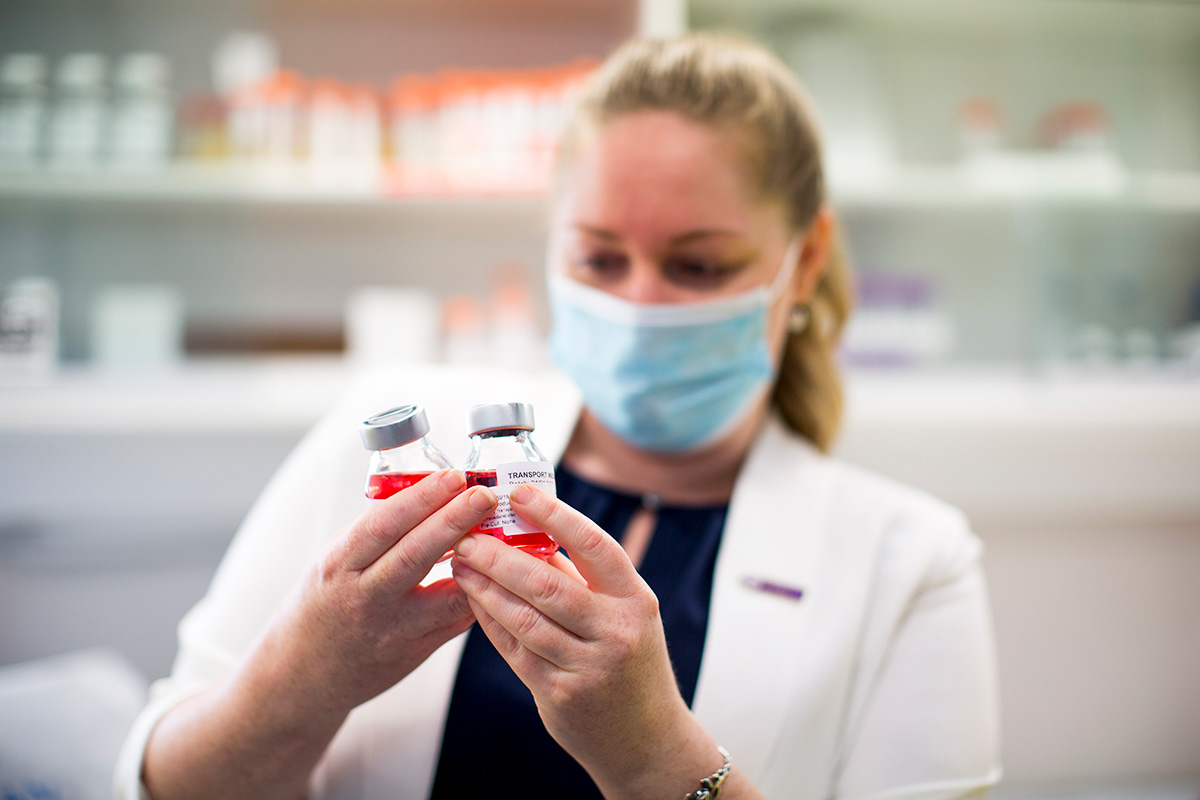This website uses cookies so that we can provide you with the best user experience possible. Cookie information is stored in your browser and performs functions such as recognising you when you return to our website and helping our team to understand which sections of the website you find most interesting and useful.
News
Vision for better eye bank system wins Lions Fellowship
A Lions Fellowship awarded to Dr Heather Machin is set to have a significant impact on improving eye donations in both Melbourne and further afield.
Dr Heather Machin has won a Lions Fellowship to improve the coordination and public awareness of eye donations for transplantation and research.
She also hopes it will shine a light on the important work of nurses in research.
Before completing her PhD, Dr Machin began her career as an ophthalmic nurse, and is now a global leader in the legal practice of sharing donated eye tissue across countries for transplantation and research, and the ethical global harmonisation of the sector.
Through her work with CERA and its eye bank – the Lions Eye Donation Service (LEDS) – she has identified a need to better coordinate a eye tissue allocation across national and international borders.
“I’m working on more strategic ways to maximise the limited access to end-of-life donations,” Dr Machin says.
“Raising awareness of the importance of public donation for transplantation and research is a passion of mine. I’d like to see long-term donors given much more information about the options.”
Dr Machin’s many titles include CERA Senior Project Manager, working across LEDS, the CERA Biobank and the Surgical and Corneal Research Units.
She is also Chair of the Global Alliance of Eye Bank Associations, and led the development of its global ethical agreement for the recovery, preparation and use of eye tissue.
Known as The Barcelona Principles, they were signed at the 2018 World Ophthalmology Congress/World Eye Bank Symposium in Spain, and subsequently endorsed by eye care and eye bank groups around the world.
Dr Machin is also running the 2022 World Eye Bank Symposium, which unites sector experts globally to collaborate on improving awareness and practice, while supporting donors and recipients.

“They advised that Australia develop a national export system and work as a national collective to manage the process and ensure donations were ethically managed and allocated,” Dr Machin says.
Another paper published by Dr Machin in Clinical Ophthalmology in 2021 found that organisations managing corneal tissue recovery and allocation across national borders did not share enough information on their websites.
Improving donation awareness
The Lions Fellowship will enable Dr Machin to further her work with LEDS, which has co-ordinated transplants and research eye donations for more than 30 years, including 10,000 corneal transplants.
She also wants to ensure donor families are better informed about where the tissue might end up.
Those involved need to allocate the corneal tissue quickly, as it expires after 7-30 days. There is no national system to ensure authorities know what is available and/or needed at any one time.
Eye banks tend to allocate based on requests placed to their own organisation. Dr Machin is working to see how systems can be improved to allocate and track tissue across organisations.
The COVID-19 pandemic has created a global supply shortage for research, surgical training and transplants. This makes Dr Machin more determined than ever to boost awareness and system development.
At the CERA Biobank she also works to match donors with researchers. While many researchers are in Victoria, Dr Machin sometimes helps connect donors and donor families with other eye banks and biobanks around the country.
Research tissue is also in short supply, so she is developing ways to maximise donations for study.
Recognising nurse researchers
Dr Machin, who supported vulnerable groups early in the pandemic and is preparing Australia’s first ophthalmic nursing workforce survey through an Australian Ophthalmic Nursing Association grant, is proud to be the first nurse to receive a Lions Fellowship.
She’s also the first recipient working in social sciences and the eye bank field.
“I’m really so happy that a nurse has got it, which raises awareness of the role of nurses and social sciences and the humanities,” she says.
“That’s really important because there’s so few opportunities to champion nurses and let young nurses know that there are so many different things you can do in nursing and nursing can take you anywhere.”

